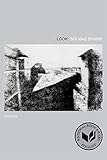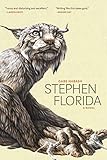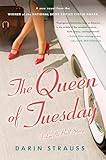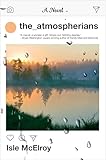There was a
before, I think, and back then I read well. I read on subways and trains. I
read in bars while I waited for blessedly late friends. I read without monitoring
the faces of people around me, without constantly assessing the implications of
every cleared throat.
I started the year with Cleanness by Garth Greenwell, which set a high bar. Cleanness looks like a short story collection but functions as a novel, accumulating tension as it goes. The radiant core of the book, a cycle titled “Loving R,” is especially marvelous. I followed it up with a little contemporary French novel called Exposed by Jean-Philippe Blondel. Is it weird that I often try to find a little contemporary French book after I read something I love? Exposed is an especially good one—an aging high school English teacher is asked to pose for one of his former students, a famous painter, and the heat of the situation gets slowly turned up until you’re in the boil.
 I also read new books by two brilliant writers. Fox by Dubravka Ugrešić, a hybrid work of essays and short stories that examines tricksters through time, is possibly my favorite of hers yet, up on the plinth with The Museum of Unconditional Surrender and Fording the Stream of Consciousness. I also enjoyed Karen Tei Yamashita’s Sansei and Sensibility, a career-spanning collection that shows off the talent established by her masterpiece I Hotel, especially in the short story “Bombay Gin.”
I also read new books by two brilliant writers. Fox by Dubravka Ugrešić, a hybrid work of essays and short stories that examines tricksters through time, is possibly my favorite of hers yet, up on the plinth with The Museum of Unconditional Surrender and Fording the Stream of Consciousness. I also enjoyed Karen Tei Yamashita’s Sansei and Sensibility, a career-spanning collection that shows off the talent established by her masterpiece I Hotel, especially in the short story “Bombay Gin.”

At some point, in retrospect, I began misreading. The horizon loomed dangerous, but I ducked my head and embarked on Yukio Mishima’s Sea of Fertility tetralogy, an odd mix of the researched approach of the Neapolitan Novels and the self-contained, à La Minute vibe of the Rabbit books. It was Mishima’s final work—his bizarre suicide occurred right after he finished. The first book, Spring Snow, the story of a 19 year old boy who experiences turbulent love, is juicy. Then things get weird—a supporting character becomes the lead, and the action jumps from 1912 to the 1930’s for the remarkable Runaway Horses, whose highlight is a long sequence of deaths that reminded me of “The Part about the Crimes” from Bolano’s 2666.
But somewhere in the middle of Runaway Horses—you know the exact day, I’m sure—I switched to reading statistics and preliminary case studies and terrifying Twitter threads. I read the panicked eyes of my beloved New Yorkers. I read and re-read my emails to my parents begging them to follow procedures that we didn’t yet understand. I read the direction of sirens. I read a sign in my local hardware store that hand sanitizer now cost thirty dollars. I read more than ever and I remember barely any of it, and when I try to read my journal from that month there’s only shaky, sideways handwriting, blue spiders of fear.
Eventually, though, I came back to Mishima. I wanted to see it through. Unfortunately, the third book, The Temple of Dawn, is bizarre: half philosophy text, half weird lecherous cliché-of-Philip-Roth-(because-Roth-is-actually-good). Pot-committed, I pressed on into the fourth volume, The Decay of The Angel, which surprised me with some meta-turns but didn’t reclaim the heights of Runaway Horses.
 Free and clear, my days filled with wiping down groceries and leaving them to bake in the sun, I finally read Hilary Mantel’s The Mirror and the Light, which started off slowly and had an unfortunately timed plague subplot, but somehow, stuck the landing. Then I finally could read Thomas Cromwell’s Wikipedia page, after avoiding it since Wolf Hall came out in 2009.
Free and clear, my days filled with wiping down groceries and leaving them to bake in the sun, I finally read Hilary Mantel’s The Mirror and the Light, which started off slowly and had an unfortunately timed plague subplot, but somehow, stuck the landing. Then I finally could read Thomas Cromwell’s Wikipedia page, after avoiding it since Wolf Hall came out in 2009.
 Then there was a bit of bad reading luck. Persuasion turned out to be my least-favorite book by Jane Austen and to get out of that I floundered into a galley of The End of Me by my beloved Alfred Hayes and it was my least-favorite by him and to get out of that I stumbled into The Italian Girl by Iris Murdoch, which was—you get it. (The Murdoch, in particular, was a tough loss because I’m rationing myself to one a year so I can have a new Iris Murdoch until I’m 57 and now I have to wait.)
Then there was a bit of bad reading luck. Persuasion turned out to be my least-favorite book by Jane Austen and to get out of that I floundered into a galley of The End of Me by my beloved Alfred Hayes and it was my least-favorite by him and to get out of that I stumbled into The Italian Girl by Iris Murdoch, which was—you get it. (The Murdoch, in particular, was a tough loss because I’m rationing myself to one a year so I can have a new Iris Murdoch until I’m 57 and now I have to wait.)

I soared out of the funk with Deborah Levy. Oh goodness, what a blessing it is to discover Deborah Levy! I loved her most recent novel, The Man Who Saw Everything, which folds into itself in surreal fashion, but I even more loved her two brilliant non-fictions, Things I Don’t Want to Know and The Cost of Living.

 Then there were days in this long, upsetting summer of American suffering when poetry was the only thing—I started writing it, for the first time in my life (“It is even in prose, I am a real poet.”) Some special collections that helped get me through the year: Charif Shanahan’s Into Each Room We Enter Without Knowing; Ben Purkert’s For The Love of Endings; Nick Laird’s Feel Free. Morgan Parker’s Magical Negro, Lizzie Harris’s Stop Wanting, Monica Youn’s Ignatz, Garous Abolmalekian’s Lean Against This Late Hour, Jenny Xie’s Eye Level, Solmaz Sharif’s Look, and Madeline Barnes’s You Do Not Have To Be Good.
Then there were days in this long, upsetting summer of American suffering when poetry was the only thing—I started writing it, for the first time in my life (“It is even in prose, I am a real poet.”) Some special collections that helped get me through the year: Charif Shanahan’s Into Each Room We Enter Without Knowing; Ben Purkert’s For The Love of Endings; Nick Laird’s Feel Free. Morgan Parker’s Magical Negro, Lizzie Harris’s Stop Wanting, Monica Youn’s Ignatz, Garous Abolmalekian’s Lean Against This Late Hour, Jenny Xie’s Eye Level, Solmaz Sharif’s Look, and Madeline Barnes’s You Do Not Have To Be Good.
Time marched on, impossibly. I read that my wedding would be canceled. I read that my family’s antique business would have to end. I read new age in my forehead, under my eyes, in my hair. I read contempt in people’s unmasked expressions when I walked in the street to avoid their sidewalk. I read a lot of subtitles on a lot of Truffaut movies—I liked Day for Night best. I read Meditations by Marcus Aurelius, and was most moved by the beginning, when he lists the people in his life for whom he is grateful, and then I read Zadie Smith’s brilliant Intimations, which, serendipitously, establishes a dialogue with Marcus Aurelius and cascades closed with a montage of people in Smith’s life.
All the while, I kept up my online reading group with the author Rick Moody—we’d been crawling our way through The Aeneid for the whole year, and (dare I spoil the end of the Aeneid? It’s 2040 years old) the last stanza is one of the weirdest things I’ve read—a shockingly abrupt close that indicts the character of Aeneas and baptizes Rome in blood. We’ve since started Sir Thomas Malory’s Le Morte Darthur, which is hilarious, especially with the antics of Merlin, who seems to know the exact plot of the book he’s in.


In August, I prepared for my semester of teaching by rereading three favorites: Long Live The Tribe of Fatherless Girls by T Kira Madden offers a glimpse at the hybrid future of books; Stephen Florida by Gabe Habash is an absurdly brilliant book, I still don’t know how he sustained the stunted yet florid prose for hundreds of pages; Jaroslav Kalfar’s Spaceman of Bohemia, is an evocative, trippy journey through outer space and the Czech Republic that somehow balances its two sides with a generous, warm spirit. Somewhere in there I also inhaled Ferrante’s Lying Life of Adults in a single sleepless night.

I then made a private self-joke by reading Yasunari Kawabata’s Master of Go alongside Stefan Zweig’s Chess Story. Both are great—so different, yet strangely similar. Kawabata’s is an actual work of reportage-cum-fiction on a style-clashing Go match he’d reported on thirteen years earlier, Zweig invents a style-clashing chess match on a cruise-ship with his absolutely charming Zweigian tic in which Stefan Zweig has to appear as a character in his own work to hear the story and relay it to us.
 I also read The Bluest Eye, which floored me. Why is it that the great books, the ones you hear about, are always so much weirder than one expects? Moby Dick is like that, and The Magic Mountain, and Mrs. Dalloway. So too with Toni Morrison. The strange multi-perspective voice, the haunting child-text refracting through the book, and the heartbreak of Pecola lurking at the margins of every chapter, inevitably suffering.
I also read The Bluest Eye, which floored me. Why is it that the great books, the ones you hear about, are always so much weirder than one expects? Moby Dick is like that, and The Magic Mountain, and Mrs. Dalloway. So too with Toni Morrison. The strange multi-perspective voice, the haunting child-text refracting through the book, and the heartbreak of Pecola lurking at the margins of every chapter, inevitably suffering.



Can I propose something for our next year in reading? It was impossible for new books to get a fair shake during this annus horriblis, so I hope we spend 2021 by celebrating the first birthdays of the class of 2020 with the gusto we usually reserve for newcomers. What a group! I inhaled Luster by Raven Leilani, which is incredibly smart and encapsulates the challenge of art-making and has a great “Hey Arnold” reference, and I remain astounded by Being Lolita by Alisson Wood, which is a harrowing, gorgeously written memoir, and The Helios Disaster by Linda Boström Knausgaard somehow lived up to her great Welcome to America, and The Exhibition of Persephone Q by Jessi Jezewska Stevens is an incisive look at doubling and self-recognition, and Catherine Lacey’s Pew does a totally incredible text-shattering ending out of William Gass, and Temporary by Hilary Leichter has this crazy recursive middle section that I can’t get over, and Brandon Taylor’s Real Life let me meet glorious lonely Wallace, and All My Mothers’s Lovers by Ilana Masad boasts a structural conceit that I remain jealous of, and Rebecca Dinerstein Knight’s Hex is pure voice, and A Burning by Megha Majumdar is upsetting in the best sense of the word, and Douglas Stuart’s Shuggie Bain is a miracle of time travel, and Braised Pork by An Yu is disorienting from the start, and I loved the quirkiness of Sarah Kasbeer’s A Woman, A Plan, An Outline of a Man, and Scholastique Mukasonga is a master whose Igifu is a haunted collection full of paradoxical love, and Queen of Tuesday by Darin Strauss—the best book yet by one of our best writers—is an innovative collage of memoir, Lucille Ball biography, and good-old-fiction.
In October, of
course, I read the maps. Weeks and weeks of maps. Maps red-shifting, and then,
after sleepless nights, slowly blue-shifting again. County-by-county maps of
Georgia and Pennsylvania to read even when I closed my eyes. And then, on a
beautiful Saturday, I read the chyron on the bottom of CNN’s screen.


Most recently, I loved Rilke’s The Notebooks of Malte Laurids Brigge, which is weird and wild, brilliantly anticipatory of later modernism, intensely neurotic and full of ghosts figurative and literal, with uncanny beats like Malte seeing his own hand under a desk. I also read two books that are coming out next year: Fake Accounts by Lauren Oyler is a bold, funny look at projected personalities online and Alex McElroy’s The Atmospherians is a keen examination of mob-think and conceptions of masculinity, and it’s funny too!
When I think of next year, most of all, I think that maybe, just maybe, there’ll be a day where I don’t feel like I have to read anything at all.
But when I
think of this impossible year in reading, the pieces that meant the most to me
were the ones by my students in creative writing classes at Rutgers University and
Marymount Manhattan College. Unbelievably, I’ve taught 94 of them in 2020—in
spring they handled the pivot to online learning with an ease that’s
characteristic of their generation, and in fall they showed up on the Zoom
screen ready to write, read, and share their lives. When I think of all that they’ve
lost, I’m astounded by the communities they forged, the kindnesses they showed
one another, and the caliber of their work. Anyone who teaches creative writing
knows that our students bring us to the most implausible worlds—in one class,
you might experience a sword fight on Mars, a break-up in a college dorm, and an
admission that changes an identity forever. In an impossible time, my students
used their creativity to get me out. They saved me, this year, because they
reminded me what reading alone can do.
More from A Year in Reading 2020
Do you love Year in Reading and the amazing books and arts content that The Millions produces year round? We are asking readers for support to ensure that The Millions can stay vibrant for years to come. Please click here to learn about several simple ways you can support The Millions now.
Don’t miss: A Year in Reading 2019, 2018, 2017, 2016, 2015, 2014, 2013, 2012, 2011, 2010, 2009, 2008, 2007, 2006, 2005
The post A Year in Reading: Adam Dalva appeared first on The Millions.
Source : A Year in Reading: Adam Dalva












